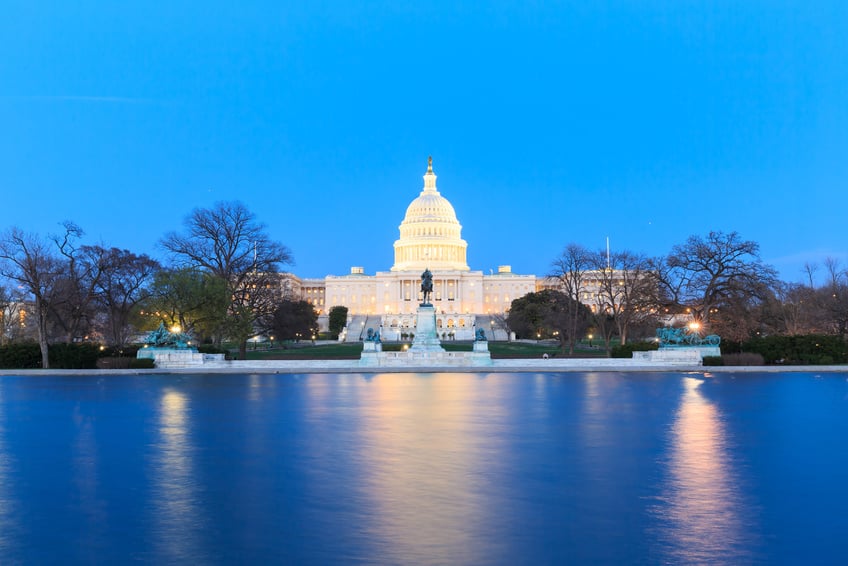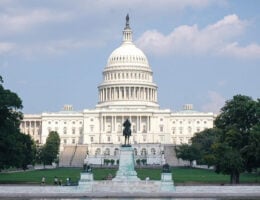The Ninth Circuit dismissed antitrust claims against Las Vegas hotels and software provider Cendyn, ruling that independent use of algorithmic pricing tools doesn’t constitute unlawful price-fixing under the Sherman Act. The court found no coordinated conduct or restraint of trade, diverging from the DOJ’s broader interpretation. While businesses may adopt pricing algorithms, they must avoid collusion. The decision sets key boundaries for antitrust liability in the context of AI-driven pricing strategies.
The Department of Justice’s Antitrust Division, in partnership with the U.S. Postal Service, has launched a Whistleblower Rewards Program to combat antitrust crimes. Following the DOJ Criminal Division’s launch of a whistleblower pilot program last year,1 the Antitrust Division is now offering a reward to whistleblowers. Under the new program, individuals who report credible and timely evidence of antitrust collusion—such as price-fixing or bid-rigging and certain monopolization cases—may receive up to 30% of recovered criminal fines. This marks a significant step in expanding detection tools for antitrust violations, with reports to be submitted through a dedicated DOJ webpage.
Our global panel discussed how authorities are stepping up antitrust enforcement, the challenges of managing cross-border investigations, and what effective compliance looks like in 2025. Authorities are increasingly proactive and coordinated, using AI and data scraping to detect infringements such as bid rigging, price signalling, parallel pricing, and suspicious labour…
The European Commission has issued its first fine in a no-poach case in the labor market, and its first sanction of the anti-competitive use of a minority share in a competing business. With the fine of EUR 329 million, the Commission joins the ranks of a number of high-profile antitrust enforcers worldwide that have targeted HR-related infringements. The Commission’s first intervention is also likely to encourage other EU regulators to follow suit and is an important reminder of the need to carefully manage antitrust risk (specifically information flows) where a company holds a minority shareholding in a competitor.
On 22 May 2025, the U.S. Federal Trade Commission (FTC) and Department of Justice (DOJ) filed a Joint Statement of Interest in a lawsuit led by the State of Texas against three large investment companies. The lawsuit, led by Texas Attorney General Ken Paxton, has been joined by 10 other states and accuses the asset managers of using their positions in climate-focused investment initiatives to manipulate coal markets, driving up the cost of energy and resulting in higher energy prices for American consumers. This action, as the DOJ publicly notes, is the first formal statement by the Agencies in federal court on the antitrust implications of common shareholdings
On 12 May 2025 the newly issued Criminal Division White-Collar Enforcement Plan, the Head of the US Department of Justice (DOJ)’s Criminal Division, Matthew R. Galeotti, set out the Department’s priorities for corporate criminal enforcement under the new Administration and issued a number of updated policy documents.
These changes affect the Criminal Division’s Corporate Enforcement and Voluntary Self-Disclosure Policy, its policy on the Selection of Monitors (memorialized in the Memorandum on Selection of Monitors in Criminal Division Matters, and the Whistleblower Awards Pilot Program.
Our popular Annual Compliance Conference, which attracts senior in-house legal and compliance professionals every year from across the world, will be held virtually from 3 to 12 June 2025.
The conference will provide you with valuable insights from our international trade, compliance and investigations, regulatory and antitrust lawyers. We will delve into critical topics shaping the future of global businesses such as sanctions, export controls, customs and tariffs, national security laws, antitrust, product regulation, ESG and related enforcement trends.
On 13 February 2025, the US Department of Justice Antitrust Division and the Federal Bureau of Investigation announced the launch of a new online portal to help track and arrest international fugitives believed to be evading prosecution for anticompetitive crimes by remaining abroad. Specifically, the portal features information on individuals who have been publicly charged with competition crimes but have not yet answered the charges in federal court. The portal currently provides identifying information for more than 70 international fugitives charged in connection with DOJ’s long-standing investigations into price fixing and bid rigging conspiracies related to automotive parts, fuel supply contracts to the US Department of Defense, air cargo, and international shipping, among others.
On January 16, 2025, the Department of Justice and the Federal Trade Commission replaced the 2016 Antitrust Guidance for Human Resource Professionals. The new guidelines now titled, Antitrust Guidelines for Business Activities Affecting Workers, reaffirm the major points of the 2016 guidelines. Wage-fixing and no poach agreements remain illegal and sharing wage information may violate the antitrust laws. However, the new guidelines identify a slew of other agreements and practices that can violate antitrust laws, including franchisee agreements with employment restraints, non-compete clauses, overly broad non-disclosure agreements, and other employment restraints.
On January 14, 2025, the Department of Justice, Antitrust Division and Department of Labor, Occupational Safety and Health Administration issued a Joint Statement, asserting that non-disclosure agreements (NDAs) undermine whistleblower protection laws, including the Criminal Antitrust Anti-Retaliation Act (CAARA), when they deter or prevent an employee from coming forward. The Antitrust Division noted they are focused on allowing individuals to report antitrust violations without the fear of retaliation. The Joint Statement also warns against using NDAs as an improper shield to obstruct an investigation, which may result in separate federal criminal violations for companies.








